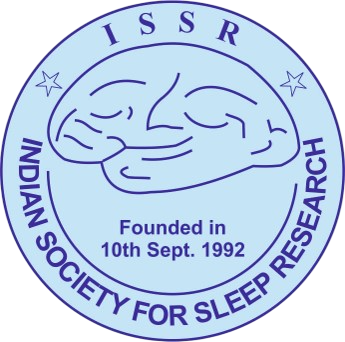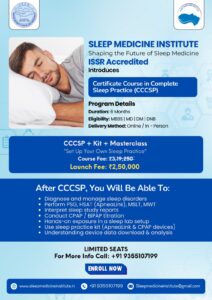‘I have been taking sleeping pills for the past 5 years and they don’t seem to work anymore. What should I do now?”, is a common complaint amongst chronic users of sleeping pills. If you find it difficult to fall asleep at night or wake up tired, and use sleeping pills to sleep, you need to consider a few things first. Around 20% of people all over the world suffer from Insomnia and find it difficult to fall asleep at night and complain of waking up at frequent intervals during the night. Over a period of time, lack of sleep leads to other lifestyle diseases such as diabetes, obesity, and hypertension as well as an impact on mental health.
Types of Insomnia
Insomnia is a common sleep disorder. It may be for a short while (due to stress) or a chronic case (due to underlying conditions like anxiety, depression, or chronic pain). Short-term insomnia usually lasts for a few days or weeks while it is chronic when it persists for a minimum of three nights a week for at least three months.
According to a National Health Interview Survey from the United States, around 19% of adults use at least one sleep medication for insomnia. Often, they resort to prescription drugs, dietary supplements containing melatonin, and over-the-counter medications as an aid for relaxing sleep.
Are Sleeping Pills really useful?
According to the American Academy of sleep medicine, the idea of using sleeping pills as aid is far-fetched as they only help in falling asleep 8 – 20 minutes faster and add around 20 – 35 minutes to the night sleep. Over a period, even lesser than 5 years, the body develops tolerance to the pills and thus it requires it in larger doses than prescribed to get the desired effect. Some prescription sleeping pills include Antidepressants, Benzodiazepines, Z-drugs
Sleeping pills should only be used for a short time
Sleeping pills are good and helpful only for a short time when one is coping with a difficult situation like a divorce or a death.
According to The Journal of the American Medical Association, more than 68% of patients prescribed sleeping pills take them longer than it was advised and in larger doses than it was prescribed. This tendency can be a problem as these controlled substances are addictive. It poses a high risk that the patient may become dependent psychologically on sleeping pills. Use of sleeping pills for longer periods of time or in higher doses increases the chances that the person will experience negative side effects like:
- headaches
- dizziness and light headedness
- nausea and vomiting
- hallucinations
- depression
- daytime drowsiness, etc.
How can one stop taking sleeping pills?
If one is planning to stop taking sleeping pills, they should contact their doctor or health care provider, because their body may be accustomed to using of the pills and a sudden stop may lead to rebound insomnia or other withdrawal symptoms.
How can one sleep better without sleeping pills?
Cognitive Behavioural Therapy(CBT), which is a form of short-term counseling is a better alternative to sleep pills. It helps in learning and forming new and healthy habits, allowing one to relax and sleep better. Compared to sleeping pills, it is risk-free.
Some tips for better and restful sleep.
- Establishing a Sleep-wake time table
- Avoiding substances that impair sleep, like caffeine, nicotine and alcohol
- Reducing screen time before you go to bed
- Relaxing with soothing music, a good book or meditation .
- Shutting off electronic devices at least 30 minutes before bedtime.
- Staying physically active during the day. Trying to get outside, if possible.
- Turning your bedroom into a dark, quiet and cool sanctuary.
Conclusion
In conclusion, sleeping pills should only be used for a very short amount of time and only if the insomnia is being caused by a traumatic event such as an accident, loss of a loved one, divorce, etc. Chronic use leads to a build of tolerance, and dependence and eventually, the effect of the sleeping pills will wear off completely. Hence, alternate behavior therapies instead of sleeping pills should be used.
To seek help or know more about how to stop using sleeping pills, you can visit the Neurology and Sleep Centre, the 1st sleep centre in the country accredited by the Indian Board of Sleep Medicine at L-23, Hauz Khas Enclave, New Delhi, Delhi-110016 (INDIA)
Or give a call on +91-11-46070321, +91-9643500270
References
[a]. Uchimura N. (2012). Nihon rinsho. Japanese journal of clinical medicine, 70(7), 1100–1106.
[b]. Reynolds, C. F., 3rd, & O’Hara, R. (2013). DSM-5 sleep-wake disorders classification: overview for use in clinical practice. The American journal of psychiatry, 170(10), 1099–1101.
[c]. Schutte-Rodin, S., Broch, L., Buysse, D., Dorsey, C., & Sateia, M. (2008). Clinical guideline for the evaluation and management of chronic insomnia in adults. Journal of clinical sleep medicine : JCSM : official publication of the American Academy of Sleep Medicine, 4(5), 487–504.
[d]. QuickStats: Percentage of Adults Aged ≥18 Years Who Took Medication To Help Fall or Stay Asleep Four or More Times in the Past Week, by Sex and Age Group — National Health Interview Survey, United States, 2017–2018. MMWR Morb Mortal Wkly Rep 2019;68:1150.
[e]. Bertisch, S. M., Herzig, S. J., Winkelman, J. W., & Buettner, C. (2014). National use of prescription medications for insomnia: NHANES 1999-2010. Sleep, 37(2), 343–349.
[f]. Choosing Wisely. Sleeping Pills for Insomnia.
[g]. American Academy of Sleep Medicine. When to Take a Sleeping Pill for Insomnia.
[h].Moore, T. J., & Mattison, D. R. (2018). Assessment of Patterns of Potentially Unsafe Use of Zolpidem. JAMA internal medicine, 178(9), 1275–1277.



